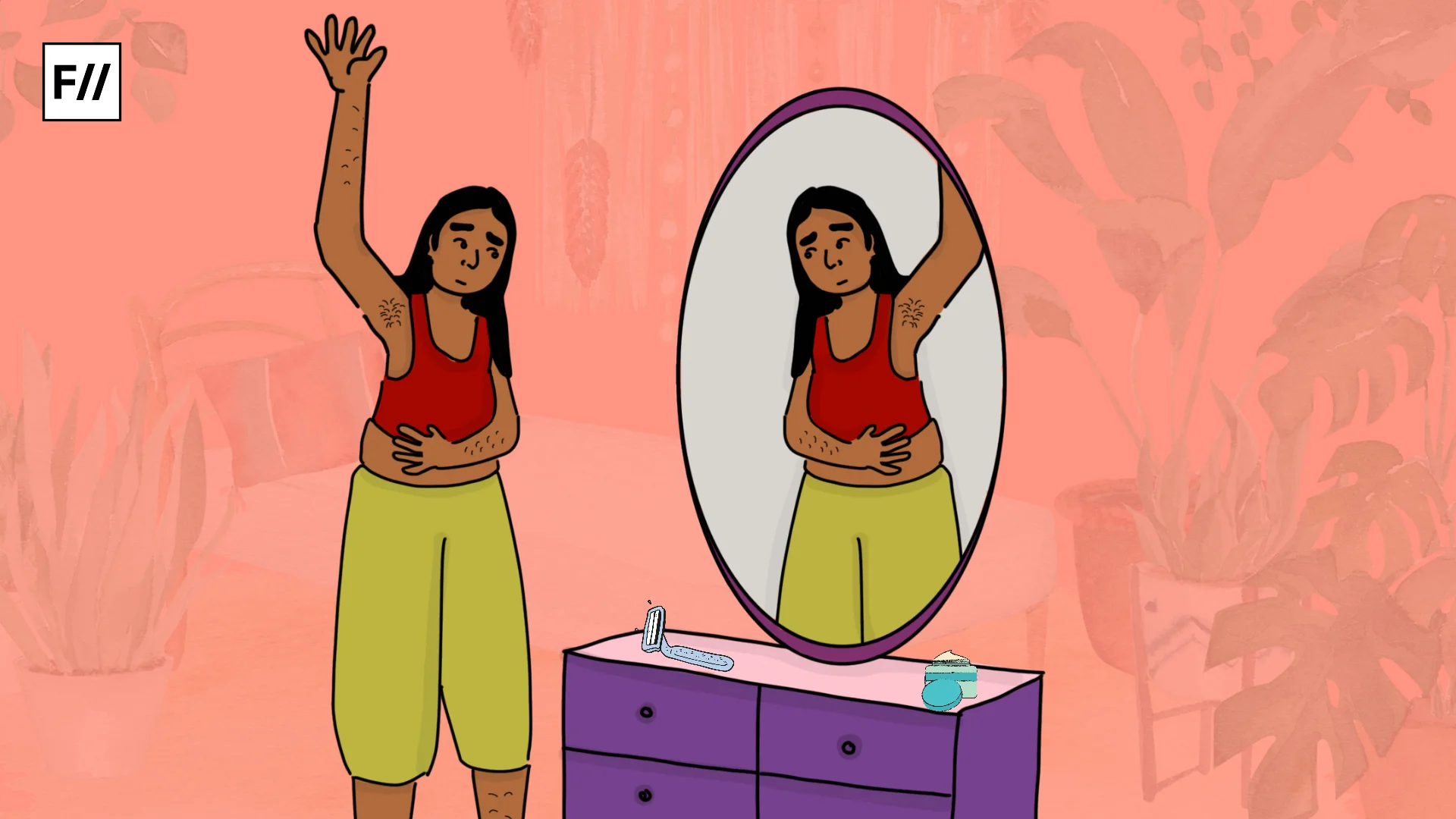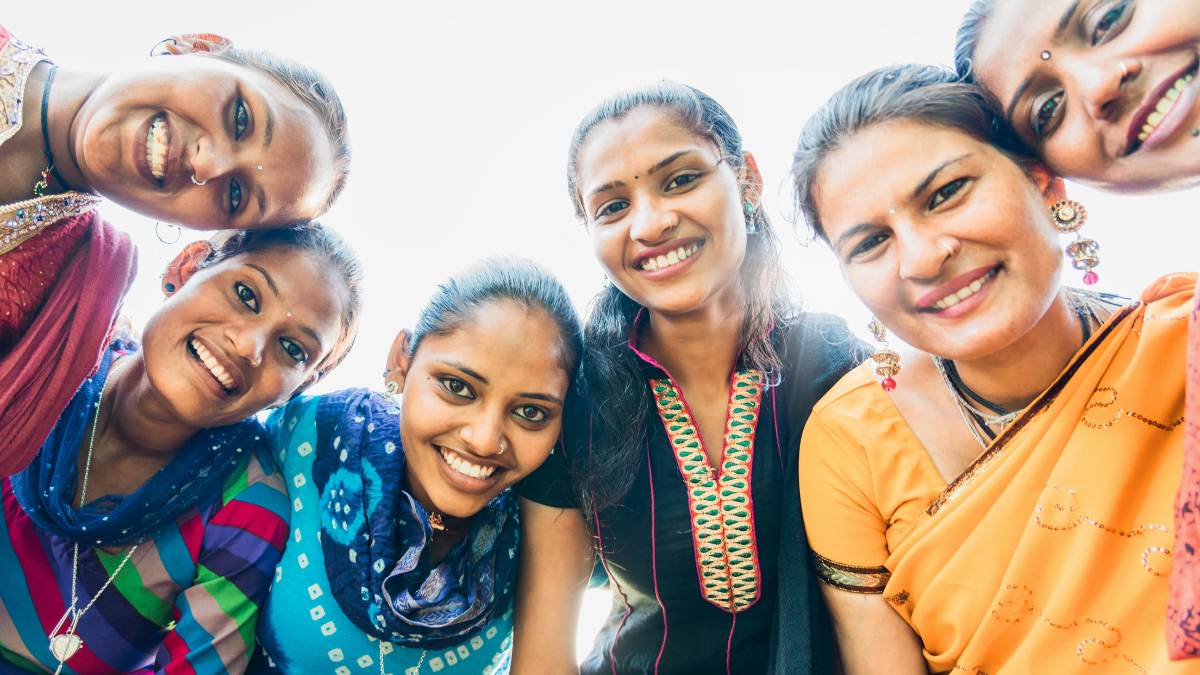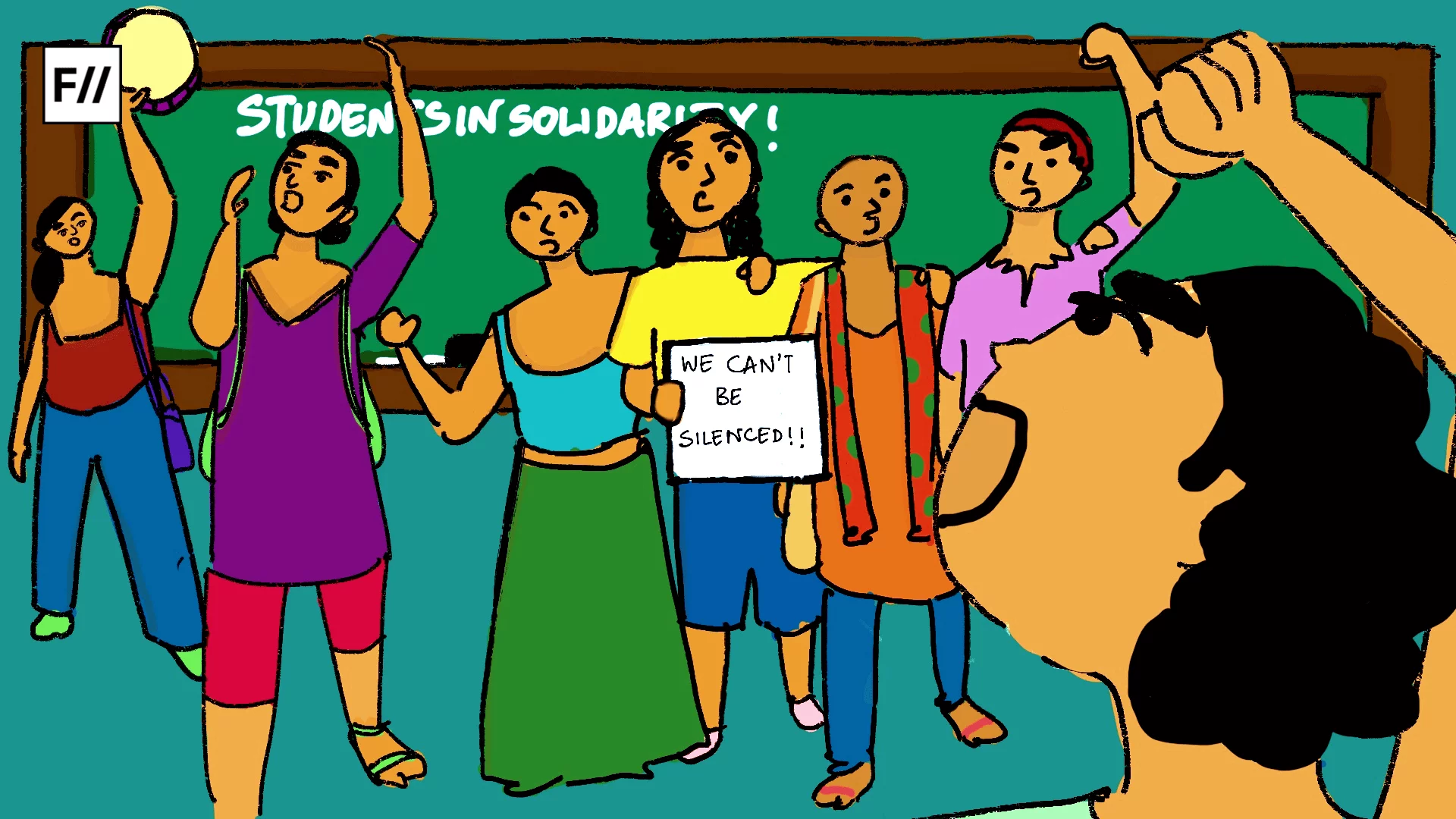Editor’s Note: This month, that is May 2020, FII’s #MoodOfTheMonth is Menstrual Health, where we invite various articles about various experiences that revolve around menstruation or the absence of the same. If you’d like to share your article, email us at pragya@feminisminindia.com.
“I am not free while any woman is unfree, even when her shackles are very different from my own”
~Audre Lorde
The stigma, silence and misinformation around menstruation, essentially overlook the intersectionality of class, caste and gender. The menstruation blood is strictly distinguished from other bodily fluids and culturally portrayed as dirty, unclean and impure. The existence practice of everyday religious dogmatism enables this practice of internalized taboo and therefore, institutionalizes the legitimization of cultural shame around menstruation.
The unconscious biases amongst us resulting from our socio-economic position have often led us to acquire a false sense of security and therefore not realizing the importance to prioritize and dismantle myths around menstruation. It is thereby significant to address what exactly is period poverty. Although, the UN acknowledges menstrual hygiene as a global health issue, the outbreak of pandemic, ‘Covid-19’ has globally increased the vulnerability around period poverty.
What is Period Poverty?
The inadequate access to menstrual products and education around hygiene had been a serious barrier in working towards menstrual equity. The instances of not only the lack of availability of sanitary napkins but also washing facilities and waste management attached to it turn this into an expensive affair. The conversation around period poverty aims to create a dialogue to reduce stigma and spread proper education encompassing menstruation.
It is also important to acknowledge in conversation around period poverty, ‘not all menstruators are women and not all women menstruate’. There are women across the globe not experiencing menstruation due to various medical conditions. It is important for us to engage in dialogue around menstruation beyond gender binary. In most third world countries, menstruation is also strictly impacted as a result of malnutrition, and India is not an exception.
India’s Period Poverty
India’s initiative of exempting service tax on sanitary napkins has not essentially impacted largely as a result of the lack of resources. According to the report of Indian Ministry of Health, only 12% of menstruators in India have exposure to proper period products. The rest of 88% however, are largely dependent on unsafe materials like rags, cloth, hay, sand and ash as their only alternatives. This exposes them to infectious uro-genital diseases such as urinary tract infection (UTI), bacterial vaginosis with skin irritation, vaginal itching, white and green discharge and others.
An average of more than 40% of students in India resort to missing school while menstruating as a consequence of social stigma, isolation, embarrassment and inaccessibility of products. The instances of avoiding school are also ramification for the lack of proper sanitation facilities across the country. It has been estimated that 1 out of 5 girls drop out of the school after they start experiencing menstrual cycle. As a result of such ineffective, unhealthy measurements, young girls are exposed to physical health risks from a very early age. This also negatively impacts sexual, reproductive and mental health of individuals. The immense privatization of the health system in India has necessarily excluded the needs of the huge section of the country.
It is also important to acknowledge in conversation around period poverty, ‘not all menstruators are women and not all women menstruate’. There are women across the globe not experiencing menstruation due to various medical conditions. It is important for us to engage in dialogue around menstruation beyond gender binary.
In spite of the sex-education curriculum addressing the issues around menstruation, it necessarily reaches us after we start experiencing our menstrual cycle. As a consequence of the lack of discussion, 71% of girls in India remain unaware of ‘what is period’ before they experience it. The ostracisation of young girls by various communities across the country and justification of such acts by cultural scriptures leads to a sense of silencing around these issues. The exclusion of boys in menstrual education creates a sense of ignorance and leads to the instances of bullying around ‘period shame’. The broken lock doors in schools raises the question of security.
40% of all government schools in India lack proper functioning of common toilets and 40% lacks separate toilets for girls. Amongst the instances of open defecation, availability of proper sanitary products seems obscure. The absence of menstrual friendly environment in schools contributes to the crisis further. The limited and non-availability of female teachers across the country especially in remote areas can be identified as serious issue which remains unattended. The cultural taboo attached to menstruation prohibits male teachers from engaging in any such discussions. In India, in many instances, menstrual products are not considered essential. This idea is inherently rooted in power-based hierarchies which contribute to women’s disadvantaged position in the patriarchal society.
Interventions and Period Poverty
The issues encompassing period poverty is being addressed by various civil societies aimed at establishing menstrual equity policies across the country. It is also important to address various forms of government advocacies. ‘Swachh Bharat: Swachh Vidyalay’ campaign was introduced in 2014, to ensure every school in India has functional and well-maintained ‘WASH’ facilities. The ‘WASH’ facilities included the availability of soap, private space for changing, adequate water for washing and disposal facilities for used menstrual objects.
The components which primarily act as criteria for menstrual friendly milieu as suggested by Menstrual Hygiene Management (MHM) would include how teachers and school management takes active participation for spreading awareness around menstrual health and how the school answers waste management facilities. This would comprise of clean female toilets, safe disposal of sanitary products and emergency availability of sanitary napkins.
The efforts have been made for the installation of napkin-vending machines and increased accessibility of environmentally safe disposal mechanisms. In 2018, on Womxn’s Day, the government launched 100% oxy-biodegradable sanitary napkins, ‘Suvidha’ in packs of four at a price of 10. However, this initiative has not been able to generate nation-wide response and awareness.
The organization named ‘Goonj’ facilitates production of simple-reusable cloth pads made by local women. This also provides the opportunity of entrepreneurship for these local women across the country. ‘Menstrupedia’, a for-profit enterprise, designs and develops comic-books on menstruation in the local context to impart public awareness and education around menstrual health management (MHM) to adolescent girls in schools. The NGOisation of the cause has made a large contribution in reaching out with the resources in various parts of the country and has achieved partial success in a few instances.
The depoliticisation of talk around menstruation has hindered the process of initiating changes in policy level. It is time to acknowledge period poverty as part of public health crisis across the country. The inclusion of workshops encompassing understanding around menstruation as part of training programmes will help to address the unconscious gender stereotypes embedded in our everyday interactions. This shall pave the way towards menstrual equity and move towards progressive social change and deconstruct structural patterns of superstitions and stigmatization attached to menstruation.
Nevertheless, questions must be raised along the lines of the accessibility of alternatives in these regions where the above measures cannot be implemented due to significant barriers. It is estimated that families of 70% of women in India cannot afford sanitary napkins. There still remains a massive gap between effective program planning and successful implementation of existing policies resulting in the drop out of 23% of girl-child from schools as they reach their puberty.
Also read: Inaccessibility To Menstrual Hygiene In Times Of COVID-19
Probable Solutions (?)
It is important to construct a movement devoid of exclusion of any vulnerable menstruators (girls with physical and mental disabilities, trans-men, adolescent girls living in streets, child laborers and individuals in institutionalized juvenile centers. There is strong restriction amongst males to learn about these issues as a repercussion of shame and disgrace identified with the process. It is important, both young boys and girls are included in discussions around menstruation as this can establish a bridge of understanding beyond social stigma. As a result of the linguistic diversity across the country it is essential to emphasize how such education is required to be formulated in vernacular in a sensitive way to reach out to the grass root.
The compulsory availability of the vending machines in schools and public toilets in the country can only be successful if proper funding for constant availability of enough resources is provided and with monitoring of these advocacies. The responsibility requires to be shared by both the government and the civil societies in order to stand in resistance unitedly to address period poverty. This collaborative effort can essentially address menstrual inequality and pave the way for dismantling stigma and availability of resources.
It is essential to include menstrual products as part of our everyday essential commodities and come in terms with how bleeding every month is not a luxurious experience. The compulsory availability of the vending machines in schools and public toilets in the country can only be successful if proper funding for constant availability of enough resources is provided and with monitoring of these advocacies.
The responsibility requires to be shared by both the government and the civil societies in order to stand in resistance unitedly to address period poverty. This collaborative effort can essentially address menstrual inequality and pave the way for dismantling stigma and availability of resources. The spread of awareness in online platforms through various menstrual hygiene campaigns have contributed to raise dialogue and participation but the reach still remains limited as a result of the differential access to technology.
The depoliticisation of talk around menstruation has hindered the process of initiating changes in policy level. It is time to acknowledge period poverty as part of public health crisis across the country. The inclusion of workshops encompassing understanding around menstruation as part of training programmes will help to address the unconscious gender stereotypes embedded in our everyday interactions. This shall pave the way towards menstrual equity and move towards progressive social change and deconstruct structural patterns of superstitions and stigmatization attached to menstruation. ‘Menstrual Hygiene’ being one of the most important fundamental human rights, requires immediate attention and action across the nation and yes this cannot wait.
Also read: Menstrual Huts: Quarantines For “Impurity”
References
- AMWA
- Global Citizen
- Hello Clue
- SPH
- Global Citizen
- Borgen Project
- IJPH
- Menstrual Hygiene Day
- ‘Menstrual Hygiene Preparedness among Schools in India: A Systematic Review and Meta-Analysis of System-and Policy-Level Actions’, Review published by International Journal of Environmental Research and Public health.
Featured Image Source: Bloom
About the author(s)
Joyoti Chowdhury is a Sociology Student with the hope of emancipation to create an egalitarian reality.




